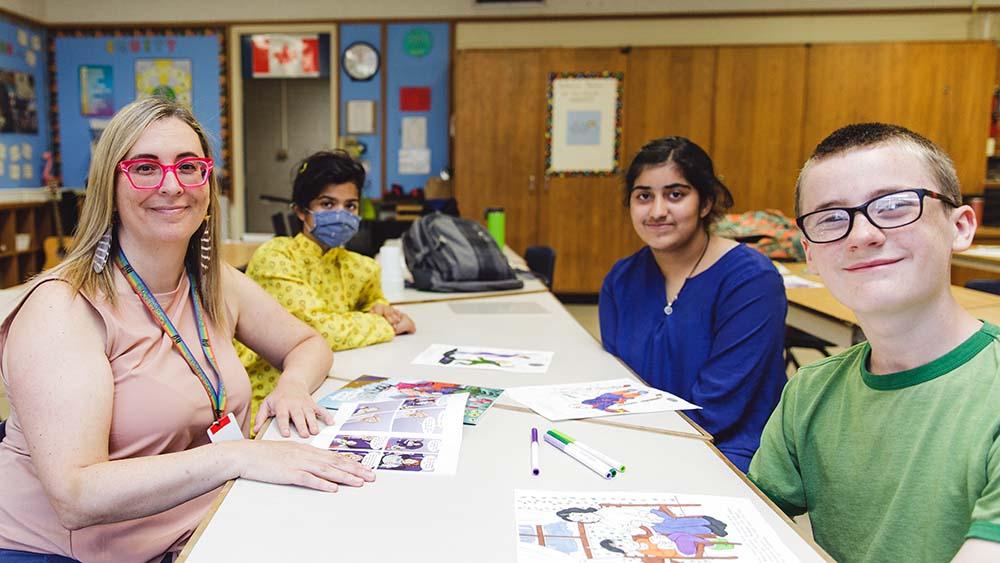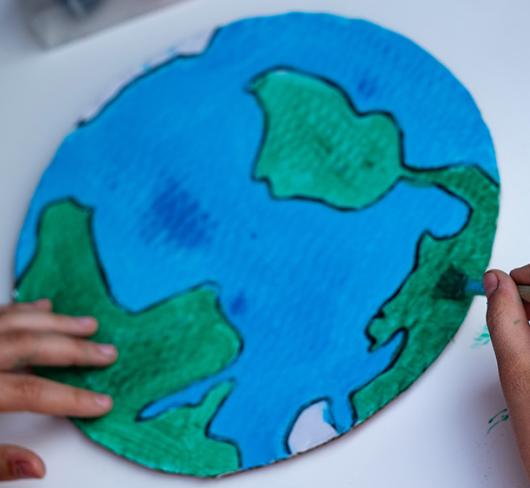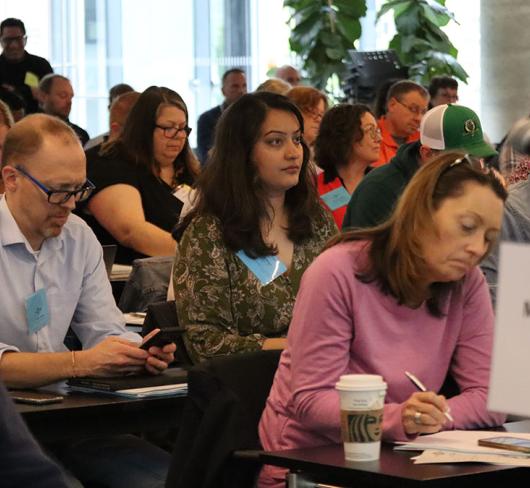
2SLGBTQ+ Inclusion
A long history of political activism has made many positive changes for 2SLGBTQ+ communities, but there is a long way to go to reach real equity.
In a recent episode of the ETFO podcast Elementary, ETFO members Barry Van Dompseler and Melissa Sky discussed how educators can work to create supportive, inclusive environments.
The interview has been edited and condensed. You can listen or subscribe to Elementary at etfo.ca or on most podcast apps.
ELEMENTARY: Why is it important to create inclusive classrooms for 2SLGBTQ+ students?
BARRY: There is a lot of negativity. We need to amplify the voices saying, “you do belong, you are welcome, you are loved and affirmed and valued,” to make sure those voices are just as loud, if not louder, than those counter-voices that we’re also hearing.
MELISSA: Children can’t learn if they don’t feel safe. A lot of research has shown that schools are still not positive spaces. The work that we do around inclusion in schools for the 2SLGBTQ+ community is vital. It is potentially life-saving.
ELEMENTARY: You’re updating an ETFO resource on 2SLGBTQ+ inclusion that was first created a decade ago. What issues are you addressing?
MELISSA: Teachers tend to be caring individuals who are conflict-averse. But unfortunately, when it comes to equity, sometimes we must have these difficult conversations. We must give teachers what I would call “speaker’s notes” for conflict. Simple, short, assertive sentences that they can use when they’re facing pushback or conflict with a parent.
ELEMENTARY: Barry, for more than a decade you’ve been putting together a conference for Gender and Sexuality Alliances, or what’s also known as Gay Straight Alliances. Can you talk about the inspiration for that conference and what stands out for you?
BARRY: Students can find each other a little more easily now, but they still love and benefit from an affinity space where they can come together and just be themselves. Students say, “I wish every day of school were like this. I wish I could go into a building every day where I felt affirmed and seen and valued and loved.”
MELISSA: For queer people, we can’t necessarily turn to our families as role models of how to exist in the world for this part of our identities. For most of us, our parents can’t support us in that way. For some vulnerable students, their families are some of the sources of their worst oppression. Educators must visibly flag that we are understanding and culturally competent.
ELEMENTARY: How can 2SLGBTQ+ ETFO members support themselves and 2SLGBTQ+ colleagues?
MELISSA: We have to take care of our mental health because we’re exposed to a lot of trauma. In terms of colleagues, showing up for each other and supporting each other’s daily work and any equity initiatives is super helpful.
ELEMENTARY: Do you have a few tips on how teachers and education workers can best create a safer space?
BARRY: I tend to set classroom expectations that are co-constructed in the first few days of school. Decide how the class is going to ensure that everyone feels safe.
MELISSA: Especially with our older students, we need to be very explicit: what is homophobia? What is transphobia? What are discriminatory slurs? What are discriminatory actions? To educators who might be nervous about engaging in inclusion work: engaging in allyship imperfectly is better than not engaging at all. We need you to show up.
Meagan Perry is a member of ETFO executive staff.

